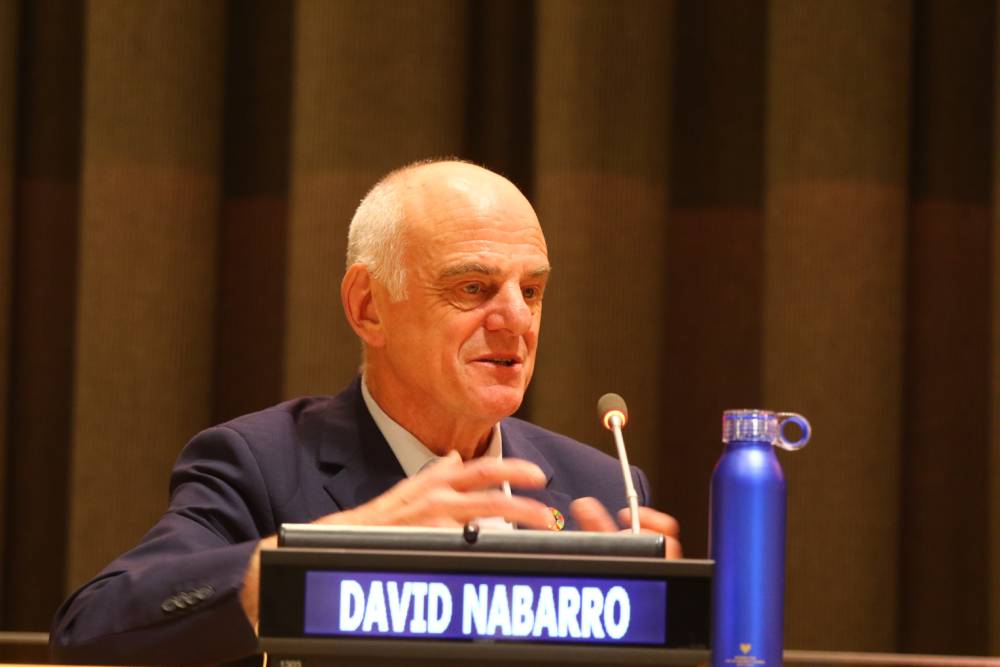COVID and the case for adaptive leadership
August 17, 2021
For our Christmas 2020 special edition we interviewed Dr David Nabarro. David (pictured) is the World Health Organisation (WHO) Director-General’s Special Envoy on COVID-19. A regular media commentator, he’s made his career in the international civil service working with both the Secretary-General of the United Nations and the Director-General of the WHO.
Last September he co-authored an article for Harvard Business Review, titled: 5 Principles to Guide Adaptive Leadership.
What is adaptive leadership and why is it important to organisations?
David: Adaptive leadership, also referred to as Living Systems Leadership, is a form of leadership that enables us to address complex challenges that are non-linear, involve inter-connected systems, and require a collective response that puts people fully at the centre. It offers organizations the greatest value in dealing with complex existential challenges due to its capacity to adapt to the non-linearity of processes that occur in our world. It accepts that it’s best to view what happens in our world as the interaction of multiple systems and it’s a form of leadership that recognises people are the most important actors and assets within these systems. By embracing this form of leadership, we can encourage leaders to focus on the challenges they are dealing with but also to recognise that in responding to those challenges it is essential to constantly adapt our response to the realities of the challenge and to make that a characteristic of the leadership style.
Why has this form of leadership become more important as a result of the COVID-19 pandemic?
David: COVID should be viewed as a multi-systems challenge as well as a public health issue. It poses implications at both a local and international level and affects a broad range of policy areas, increasing risks of adverse outcomes like malnutrition and unemployment. The most effective response is through the collective engagement of networks of public health and other professionals through astute and adaptive systems leadership. This is an essential complement to existing multilateral cooperation between leaders of national governments with their pre-existing approaches to collective standard-setting.
At a local level a systems leadership COVID response helps prevent transmission through effective case detection and isolation. It can build on a centralized approach to specific functions, such as testing, tracing, and isolating. But it can also tune in to the fears, concerns, and other feelings experienced by those whose lives are being transformed. The most effective responses start from the living systems in which people find themselves: we then build on these systems through encouraging connections among different groups in people’s local communities.
Are there notable historic events or decisions where there’s been an absence of adaptive leadership and how has that been apparent?
David: Adaptive leadership has three important features: it’s collaborative – it draws on the energies of everybody; it’s collective – it involves the sharing of energy among those leading; and, thirdly, its credit must be equally distributed as all are involved in contributing to outcomes and there is no need to single out any individual.
Adaptive leadership contrasts with a more traditional concept in which the leader is out in front pulling everyone along. This style of out-in-front leadership can be highly motivating. But adaptive leadership is also producing benefits across the world by enabling those who are wanting to work together to navigate their journeys. I have seen it in indigenous communities where individuals come together to preserve their food and resources. With the pandemic the collective response is having the biggest impact; this is demonstrated in many regions where adaptive leadership is embodied. This style of leading is humble, shared, and often invisible.
A challenge, however, is to help effective adaptive leaders feel validated for their contribution. Often they question the impact of what they do because it is rarely possible to attribute systems change to any one influence or other.
How can an organisation go about fostering greater adaptive leadership in the workforce?
David: You must want to do it and you have to be prepared for the challenges associated with its implementation. Being an adaptive leader is not comfortable. It means confronting the realities about what matters in people’s lives. It recognises there are multiple issues to deal with at all times. Not every problem can be simplified into little pieces. An adaptive leader encourages a shift in priorities in response to connecting with the people who are most affected. I recently heard from a company affected by COVID-19. The senior management had collectively taken a pay cut, deployed the proceeds to pay for the installation of protective measures for their staff, and created a fund to ensure staff taking sick leave could receive almost full pay. The senior management understood their companies’ survival was dependent on their relations with their workforce. It worked and has been effective. Implementing adaptive leadership changes the relationships between those who are in positions of authority and those who are in the workforce: once the new ways of working have emerged things are unlikely to go back.
What role does real-time feedback play in enabling adaptive leadership?
David: You can’t pursue adaptive leadership as a leader without constantly being ready to receive and to react to feedback. But, at the same time, you also need to be able to indicate when you don’t agree with that feedback. You need to be sufficiently self-confident to be able to say: “Nope, I’m not going to shift, I’m going to do what I think is right” while, at the same time, explaining yourself. Adaptive leadership is not soft. Adaptive leadership is not folding each time you are challenged. In fact, it’s highly principled. But adaptive leadership is about sensing and feeling where people are because an adaptive leader meets people where they are rather than where the leader thinks they ought to be. And that is only possible if there is real-time, honest feedback.

